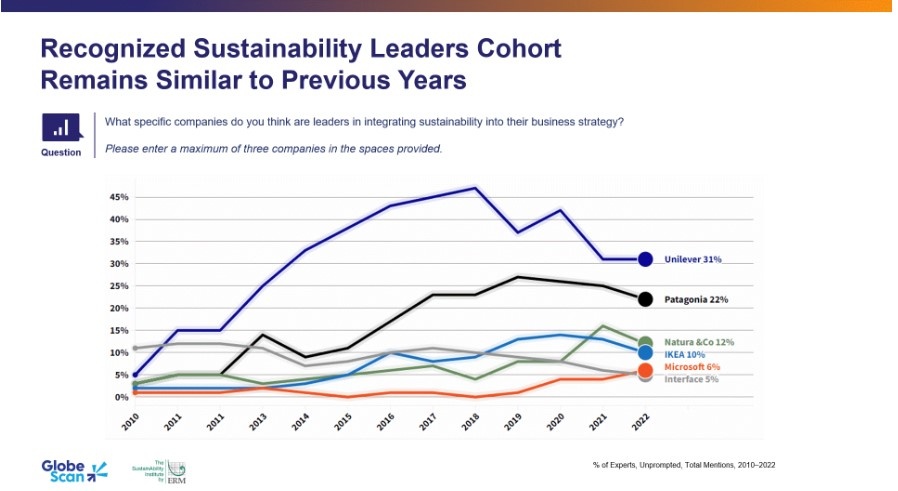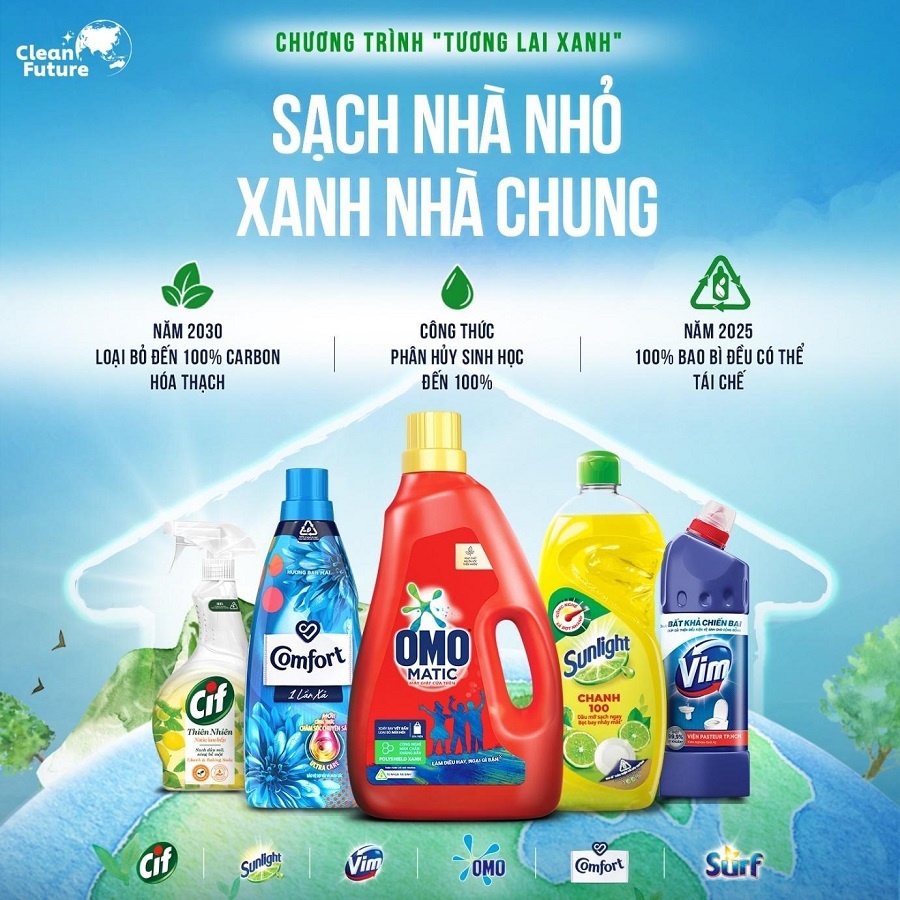Unilever leads in corporate sustainability in 12 consecutive years
 |
| Unilever leads in corporate sustainability in 12 consecutive years |
This year, 718 sustainability experts from 73 countries – who were drawn from academia, the corporate sector, governments, media organisations, and NGOs – were asked to name the three companies that they feel are showing the greatest commitment to integrating sustainability into their business strategies.
Having maintained its position at the top of this increasingly competitive field for more than a decade, Unilever is motivated to drive its Compass sustainability agenda by improving the health of the planet, improving people’s health, confidence, and wellbeing, and contributing to a fairer and more socially inclusive world.
Unilever’s CEO Alan Jope said, “It’s a privilege to be recognised by a panel of experts as the global leader in sustainable business.”
“Topping the GlobeScan list for the 12th year gives everyone at Unilever a great sense of pride and encourages us to continue building a responsible business, translating leadership in sustainability into superior financial performance,” he added.
As the largest and longest-running survey of its kind, the GlobeScan and SustainAbility Leaders Survey has tracked expert opinions on sustainable development leadership for more than 25 years.
The research draws from bi-annual surveys from a global panel of experienced sustainability experts on topics such as leadership, climate change, biodiversity, inequality, sustainable development goals, and key emerging issues.
In Vietnam, Unilever has constantly driven programmes aiming to protect the environment, enhance people’s health and hygiene, and improve people's livelihoods.
Particularly, Unilever Vietnam focuses on climate action through its purposeful brands. Clean Future programme by the company’s Home Care category is a key initiative to drive the climate commitment.
 |
| Clean Future from Unilever Vietnam contributes to tackling the climate crisis |
Clean Future programme makes three main commitments, including totally eliminating fossil-fuel-derived carbon from Home Care products by 2030, ensuring 100 per cent biodegradable formulations in Home Care products, and reducing the amount of virgin plastic in favour of post-consumer recycled plastic (PCR) in packaging.
Specifically, by 2025, all Home Care product packaging will be reusable, recyclable, or biodegradable, and more than 25 per cent will use PCR.
To achieve these goals, Clean Future focuses on creating better product formulations and sustainable product packaging.
Many of the company’s products, such as OMO, Comfort, Sunlight, and Cif already feature plant-based, nature-derived formula ingredients with packaging made from PCR plastic.
What the stars mean:
★ Poor ★ ★ Promising ★★★ Good ★★★★ Very good ★★★★★ Exceptional
Related Contents
Latest News
More News
- Vietnam ready to increase purchases of US goods (February 04, 2026 | 15:55)
- Steel industry faces challenges in 2026 (February 03, 2026 | 17:20)
- State corporations poised to drive 2026 growth (February 03, 2026 | 13:58)
- Why high-tech talent will define Vietnam’s growth (February 02, 2026 | 10:47)
- FMCG resilience amid varying storms (February 02, 2026 | 10:00)
- Customs reforms strengthen business confidence, support trade growth (February 01, 2026 | 08:20)
- Vietnam and US to launch sixth trade negotiation round (January 30, 2026 | 15:19)
- Digital publishing emerges as key growth driver in Vietnam (January 30, 2026 | 10:59)
- EVN signs key contract for Tri An hydropower expansion (January 30, 2026 | 10:57)
- Vietnam to lead trade growth in ASEAN (January 29, 2026 | 15:08)

 Tag:
Tag:



















 Mobile Version
Mobile Version